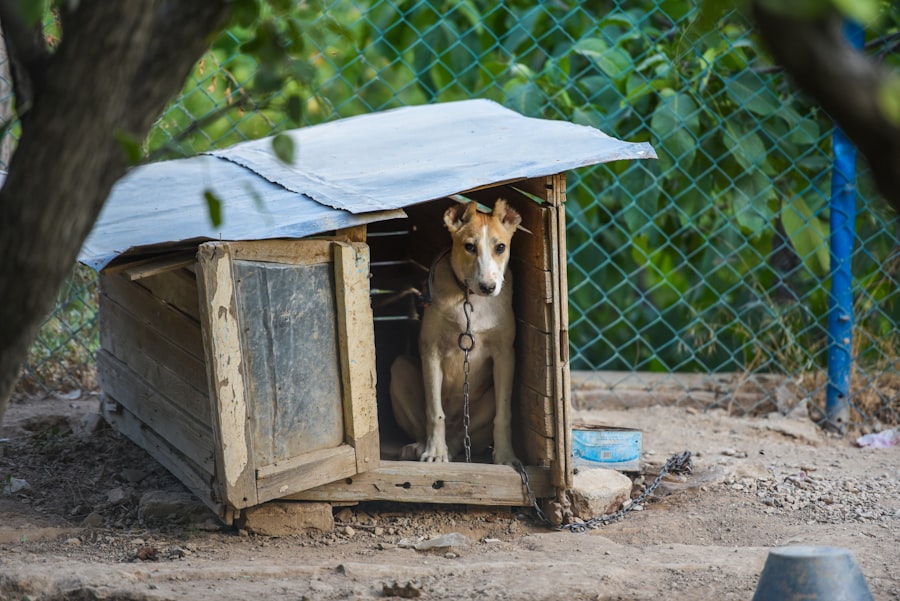The Nova Scotia Duck Tolling Retriever, also known as the Toller, is a medium-sized breed that originated in the early 19th century in the Little River District of Yarmouth County, Nova Scotia, Canada. The breed was developed to lure and retrieve waterfowl for hunters, hence the name “tolling” which refers to the dog’s ability to entice or lure ducks within gunshot range. The Toller is believed to be a mix of various breeds including the Chesapeake Bay Retriever, Golden Retriever, and possibly some spaniel and setter breeds. The breed was officially recognized by the Canadian Kennel Club in 1945 and by the American Kennel Club in 2003.
The Toller’s history is closely tied to the sport of duck hunting, and their unique ability to “toll” or play along the shoreline to attract ducks has made them a valuable asset to hunters. Over time, Tollers have also gained popularity as family pets and companions due to their intelligence, agility, and affectionate nature. Today, they are still used for hunting purposes but are also commonly seen participating in various dog sports such as agility, obedience, and flyball.
The breed’s history is a testament to their versatility and adaptability, as they have transitioned from being primarily working dogs to beloved family pets. Their rich history and unique abilities make them a fascinating breed to learn about and own.
Table of Contents
- 1 The Characteristics and Temperament of the Breed
- 2 Finding a Reputable Breeder in Georgia
- 3 Health and Care Considerations for Nova Scotia Duck Tolling Retrievers
- 4 Training and Exercise Needs for the Breed
- 5 What to Expect When Bringing a Nova Scotia Duck Tolling Retriever Puppy Home
- 6 Connecting with the Toller Community in Georgia
- 7 FAQs
- 7.1 What is a Nova Scotia Duck Tolling Retriever?
- 7.2 What should I look for in a Nova Scotia Duck Tolling Retriever breeder?
- 7.3 How can I find a Nova Scotia Duck Tolling Retriever breeder in Georgia?
- 7.4 What health considerations should I be aware of when getting a Nova Scotia Duck Tolling Retriever?
- 7.5 What is the average lifespan of a Nova Scotia Duck Tolling Retriever?
Key Takeaways
- The Nova Scotia Duck Tolling Retriever originated in the early 19th century in Nova Scotia, Canada, where they were bred to lure and retrieve waterfowl.
- This breed is known for its intelligence, high energy, and friendly disposition, making them great family pets and hunting companions.
- When looking for a reputable breeder in Georgia, it’s important to do thorough research, ask for health clearances, and visit the facility to ensure proper care and socialization of the puppies.
- Health considerations for Nova Scotia Duck Tolling Retrievers include regular exercise, a balanced diet, and regular veterinary check-ups to monitor for potential health issues such as hip dysplasia and eye problems.
- Training and exercise are essential for this breed, as they are highly intelligent and energetic, requiring mental stimulation and physical activity to prevent boredom and destructive behavior.
The Characteristics and Temperament of the Breed
Nova Scotia Duck Tolling Retrievers are known for their striking appearance, with a medium-sized, muscular build and a distinctive red coat with white markings. They have a fox-like appearance with a broad skull, medium-sized ears, and a bushy tail. Their double coat is water-repellent and provides protection from harsh weather conditions, making them well-suited for their original purpose as waterfowl retrievers.
In terms of temperament, Tollers are intelligent, alert, and energetic dogs. They are known for their playful and outgoing nature, often displaying a high level of enthusiasm and energy. They are also highly affectionate and loyal to their families, making them excellent companions for active individuals or families with children. However, their high energy levels and intelligence require regular mental and physical stimulation to prevent boredom and destructive behaviors.
Tollers are also known for their strong retrieving instincts and love for water, making them excellent companions for outdoor activities such as hiking, swimming, and retrieving games. They are quick learners and excel in various dog sports such as agility, obedience, and dock diving. However, their strong prey drive and tendency to chase may require early socialization and training to ensure they can coexist peacefully with other pets.
Overall, the Toller’s unique combination of intelligence, athleticism, and affectionate nature makes them a wonderful breed for active individuals or families who can provide them with the mental and physical stimulation they need.
Finding a Reputable Breeder in Georgia
When looking for a reputable Nova Scotia Duck Tolling Retriever breeder in Georgia, it is important to do thorough research to ensure that you are getting a healthy and well-socialized puppy from a responsible source. One of the best ways to find a reputable breeder is through referrals from local Toller clubs or breed enthusiasts in the area. These individuals can provide valuable insights into the reputation of breeders in Georgia and help you connect with trustworthy sources.
Additionally, it is essential to visit potential breeders in person to see the living conditions of the dogs and puppies. A reputable breeder will prioritize the health and well-being of their dogs, providing them with proper veterinary care, socialization, and a clean environment. They should also be knowledgeable about the breed’s characteristics, temperament, and health considerations, and be willing to answer any questions you may have about the breed.
Furthermore, reputable breeders will conduct health screenings on their breeding dogs to ensure that they are free from genetic diseases that are common in the breed. They should also provide documentation of health clearances for the parents of the puppies. It is important to ask for these health clearances and verify their authenticity to ensure that you are getting a puppy from healthy bloodlines.
By taking the time to research and visit potential breeders in Georgia, you can increase your chances of finding a reputable source for a Nova Scotia Duck Tolling Retriever puppy that will bring joy and companionship to your life for years to come.
Health and Care Considerations for Nova Scotia Duck Tolling Retrievers
Nova Scotia Duck Tolling Retrievers are generally healthy dogs with a lifespan of 12-14 years. However, like all breeds, they are prone to certain health conditions that potential owners should be aware of. One common health concern in Tollers is hip dysplasia, a genetic condition that affects the hip joints and can lead to pain and mobility issues. Reputable breeders will conduct hip evaluations on their breeding dogs to minimize the risk of passing on this condition to their offspring.
Another health consideration for Tollers is progressive retinal atrophy (PRA), an inherited eye disease that can lead to vision loss. Responsible breeders will also conduct eye screenings on their breeding dogs to ensure that they are free from this condition. Additionally, Tollers may be prone to autoimmune disorders such as immune-mediated thyroiditis and immune-mediated hemolytic anemia, so it is important for owners to monitor their dog’s overall health and seek veterinary care if any concerning symptoms arise.
In terms of care considerations, Tollers require regular exercise to keep them mentally and physically stimulated. Daily walks, playtime, and interactive games are essential to prevent boredom and destructive behaviors. Their double coat requires regular grooming to prevent matting and reduce shedding. Weekly brushing and occasional baths are recommended to keep their coat in good condition.
Overall, being aware of the potential health concerns and providing proper care for Nova Scotia Duck Tolling Retrievers can help ensure that they lead happy and healthy lives as beloved family members.
Training and Exercise Needs for the Breed
Nova Scotia Duck Tolling Retrievers are highly intelligent and energetic dogs that require consistent training and regular exercise to thrive. Early socialization is crucial for Tollers to ensure that they can interact well with other dogs and people. Exposing them to various environments, sounds, and experiences from a young age can help prevent fearfulness or aggression as they mature.
Positive reinforcement training methods work best for Tollers as they respond well to praise, treats, and play as rewards for good behavior. They are quick learners and excel in various dog sports such as agility, obedience, rally, and flyball. Engaging their minds through training sessions and interactive games can help prevent boredom and channel their energy into positive outlets.
In terms of exercise needs, Tollers are active dogs that require regular physical activity to keep them mentally stimulated and prevent behavioral issues. Daily walks, playtime in a fenced yard, or interactive games such as fetch or hide-and-seek can help fulfill their exercise needs. They also enjoy swimming and retrieving games due to their strong retrieving instincts and love for water.
It is important for owners to provide ample opportunities for physical exercise and mental stimulation to prevent boredom and destructive behaviors in Tollers. Engaging in regular training sessions and providing outlets for their energy can help ensure that they remain well-behaved companions at home.
What to Expect When Bringing a Nova Scotia Duck Tolling Retriever Puppy Home

Bringing home a Nova Scotia Duck Tolling Retriever puppy is an exciting but significant responsibility that requires careful preparation. Before bringing your Toller puppy home, it is important to puppy-proof your living space by removing any potential hazards such as toxic plants, small objects that could be swallowed, or electrical cords that could be chewed on. Providing a safe environment for your new puppy is essential for their well-being.
Additionally, having essential supplies such as a comfortable bed, food and water bowls, high-quality puppy food, toys for mental stimulation, a collar and leash, grooming tools, and a crate can help ease the transition for your new puppy. Creating a designated space for your puppy with a crate or bed can provide them with a sense of security as they adjust to their new surroundings.
Establishing a routine for feeding, potty breaks, playtime, training sessions, and rest can help your Toller puppy feel secure and develop good habits. Consistency is key when it comes to house training and basic obedience training. Positive reinforcement methods such as praise, treats, and play can help motivate your puppy to learn new behaviors.
Lastly, providing socialization opportunities with other dogs, people, and various environments from a young age can help your Toller puppy develop into a well-adjusted adult dog. Exposing them to new experiences in a positive manner can help prevent fearfulness or aggression as they mature.
Bringing home a Nova Scotia Duck Tolling Retriever puppy requires patience, dedication, and love. With proper preparation and guidance, your Toller puppy can grow into a happy and well-behaved companion that brings joy to your life.
Connecting with the Toller Community in Georgia
Connecting with the Nova Scotia Duck Tolling Retriever community in Georgia can provide valuable support, resources, and opportunities for socialization for both you and your Toller. One way to connect with other Toller owners in Georgia is through local Toller clubs or breed-specific events such as conformation shows, obedience trials, agility competitions, or field trials. These events provide opportunities to meet other Toller enthusiasts who share a passion for the breed.
Additionally, joining online forums or social media groups dedicated to Nova Scotia Duck Tolling Retrievers can help you connect with other owners in Georgia who can provide advice on training, health care, grooming tips, or recommendations for local veterinarians or trainers. These online communities also provide a platform for sharing photos, stories, and experiences with fellow Toller owners.
Attending local dog-friendly events or meetups in Georgia can also provide opportunities for your Toller to socialize with other dogs while allowing you to connect with like-minded individuals who share a love for dogs. Building a network of support within the Toller community can provide valuable resources and friendships that enhance your experience as a Toller owner.
Overall, connecting with the Toller community in Georgia can provide valuable support, resources, and opportunities for socialization that enrich both you and your Toller’s lives. Building connections with other Toller enthusiasts can enhance your experience as a Toller owner while providing your dog with opportunities for socialization and fun activities.
If you’re a Nova Scotia Duck Tolling Retriever breeder in Georgia, you might also be interested in learning about the benefits of renting a chicken coop. Poultry Wizard offers a helpful article on renting a chicken coop that can provide valuable insights into creating a suitable environment for your dogs and poultry to coexist harmoniously. Understanding the dynamics of different animals living together can be crucial for breeders, and this resource can offer practical tips for managing multiple species on your property.
FAQs
What is a Nova Scotia Duck Tolling Retriever?
The Nova Scotia Duck Tolling Retriever, also known as the Toller, is a medium-sized breed of gundog known for its distinctive red coat and playful nature. They were originally bred in the early 19th century in the Little River District of Nova Scotia, Canada, to lure and retrieve waterfowl.
What should I look for in a Nova Scotia Duck Tolling Retriever breeder?
When looking for a Nova Scotia Duck Tolling Retriever breeder, it is important to find one who prioritizes the health and well-being of the dogs. Look for breeders who are registered with reputable kennel clubs, conduct health screenings on their breeding dogs, and provide a clean and safe environment for their puppies.
How can I find a Nova Scotia Duck Tolling Retriever breeder in Georgia?
To find a Nova Scotia Duck Tolling Retriever breeder in Georgia, you can start by searching online for breeders in the area. Additionally, you can reach out to local dog clubs or breed-specific rescues for recommendations. It’s important to thoroughly research and visit the breeder before making a decision.
What health considerations should I be aware of when getting a Nova Scotia Duck Tolling Retriever?
Like all breeds, Nova Scotia Duck Tolling Retrievers are prone to certain health issues, including hip dysplasia, progressive retinal atrophy, and autoimmune thyroiditis. It’s important to work with a responsible breeder who conducts health screenings on their breeding dogs to minimize the risk of these conditions.
What is the average lifespan of a Nova Scotia Duck Tolling Retriever?
The average lifespan of a Nova Scotia Duck Tolling Retriever is 12-14 years. With proper care, nutrition, and regular veterinary check-ups, Tollers can live long and healthy lives.
Meet Walter, the feathered-friend fanatic of Florida! Nestled in the sunshine state, Walter struts through life with his feathered companions, clucking his way to happiness. With a coop that’s fancier than a five-star hotel, he’s the Don Juan of the chicken world. When he’s not teaching his hens to do the cha-cha, you’ll find him in a heated debate with his prized rooster, Sir Clucks-a-Lot. Walter’s poultry passion is no yolk; he’s the sunny-side-up guy you never knew you needed in your flock of friends!







